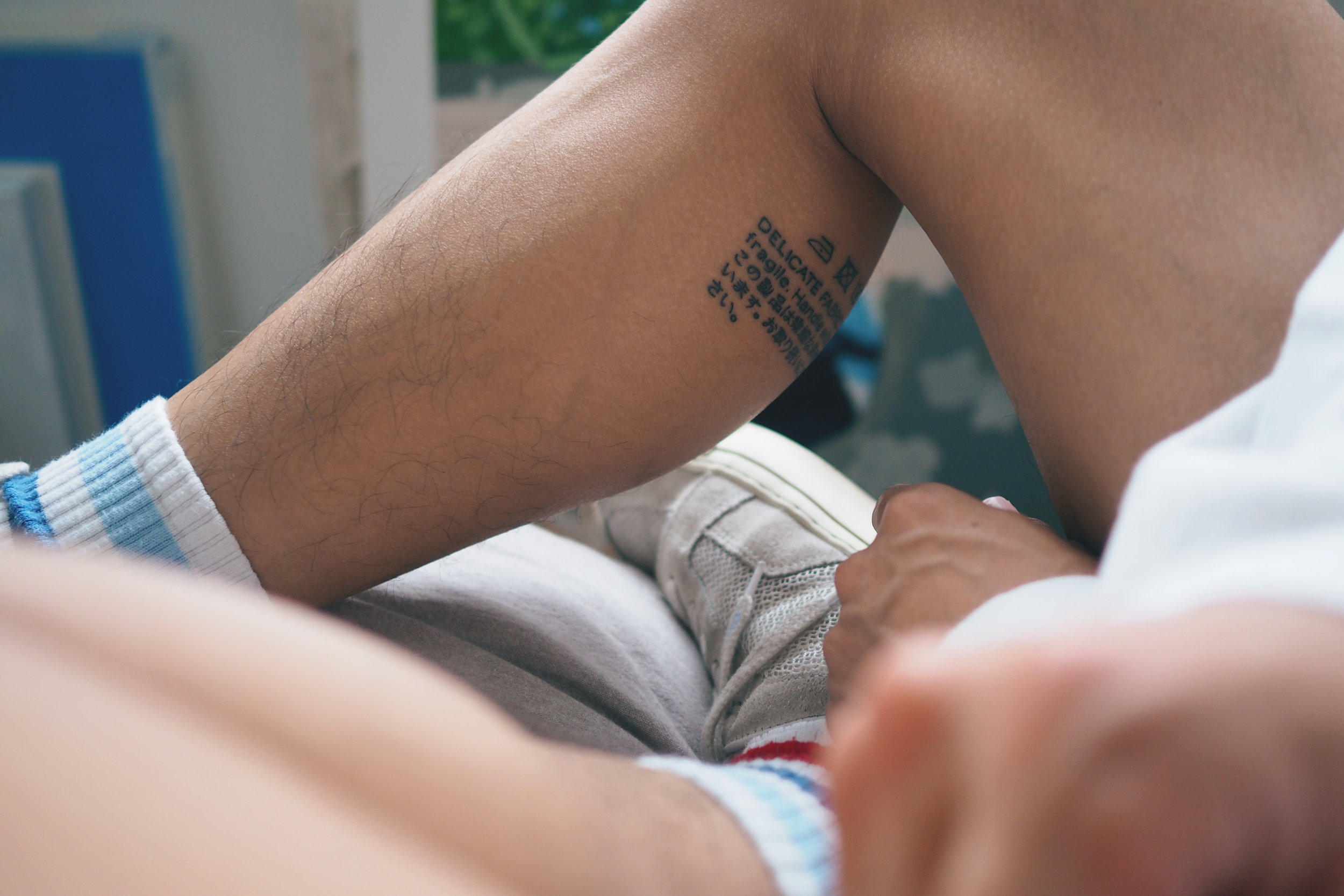Ran Cai
“Ever since the New Republic of China, we had a sort of backwards movement where sexuality became this taboo topic that we don’t really tend to talk about. Even though, back in history, we were actually very forward and open with sexualities.” Ran Cai is originally from Shanghai and now lives in Dublin – arriving by way of Glasgow and London – where he is studying gender and sexuality at UCD. Here, he speaks about his journey [physical and figurative], acclimatising to his destination, and offers perspectives on queerness and labels.
Accepted by universities in Iceland, Sweden and the Netherlands, Ran settled on Dublin without much knowledge of Ireland: “All I knew was that it was the first country to vote for same-sex marriage so I thought it had to be a very progressive country. After I moved here, within the course and outside campus, I got to know different aspects of Ireland. There are certainly some conservative ideas towards genders and sexualities in parallel with China.”
Honest about the standpoint he originated from when embarking on his studies, he says: “I feel like I’m very ignorant towards the LGBT+ community that I belong to. It’s an important time for me to really educate myself, as opposed to just getting a degree.” The shelves of his room are packed tightly [“gender, sexuality, gay stuff, photo books”]. He removes one in particular, Nevada by Imogen Binnie: “It’s about a trans woman and totally changed my perspective as a gay man. I feel, amongst LGBT+ people, gay men can be the most privileged, the most blind towards others. It’s important for us to read about other people in our community.”
Admitting to never having a serious attachment to any one place, the journey from Shanghai to Dublin was as much about Ran exploring his self as it was about exploring new cities: “Growing up, I wasn’t aware of my sexuality at all. I’ve never been a confident kid so I didn’t really know if people I had crushes on liked me or not. When I moved to Glasgow, I had a boyfriend who was Chinese. I think that’s when I got a bit more confident with my sexuality. I was so afraid to do anything affectionate in public. Then London spoiled me. London really spoiled me.”
Arriving single, the city’s multicultural flavour meant Ran dated people from more diverse backgrounds, feeding a desire to study gender: “I feel I’ve been quite blind towards gender – and race – because I’ve been privileged somehow in my life and have never suffered from anything related to race and gender before. But I’m definitely more aware of them because of Dublin.”
He continues: “In the beginning I found it a bit difficult to make friends. People here are not exposed to as many foreigners as in London, which made me feel very visually and visibly foreign. In the beginning, I suffered from very low self-esteem because of that huge gap between Dublin and London. I thought people in Dublin took zero interest in me as a person. People who did take interest in me were not really taking interest for the right reasons. It was tough. But now I really love the city and people here. I have good Irish friends, I am inspired by the people around me.”
In our initial correspondence [via Instagram direct message] Ran described himself as, “a firm believer that everyone is queer at a certain level”. Without a character limit, he elaborates: “I believe the minute we were born we should be – technically speaking – attracted to anyone who we generally think is attractive, no matter who they are or what gender they are. It’s society, which imposes loads of ideas on us, that makes us think it’s not okay to think of alternatives.
“People are afraid of trying them so they never know. Attraction is rich, with different levels to it. Which is why I believe all people are queer. You can be intellectually attracted to someone of the same sex but you might only be physically attracted to a man or woman.” We agree that the source of much hurt, directed at ourselves or towards others, may come from a fear of recognising or resisting such queer inflections.
That said, Ran sees a shift in younger people whereby, “some young kids don’t label themselves at all.” While this seems positive, it nonetheless creates a certain anxiety in him, given the label that he has come to so tightly embrace over time as a gay man: “If I was attracted to a girl at some point, I would feel somehow intimidated; that I would not be able to date them and be as attractive to homosexual men. I feel like the fear comes from within and outside at the same time. Because sometimes, even if we don’t realise, we put labels on ourselves as well, regardless of whether other people do. Maybe I’m scared of accepting that I might be bisexual or pansexual, that I might not [therefore] be as good as a gay man.”
Whether we label ourselves or are labelled by others, such tags inevitably exert pressure around how we feel we should ‘perform’ as sexual beings. For Ran, “I just don't want to mess anything up by maybe going on a date with a girl and ending up a total failure. I don’t want my date to have a certain level of expectation that I can’t deliver.”
Our conversation cannot have a conclusion. So big are the questions it raises about the fragility and resilience of labels and how they limit lived experience, as well as the fluidity of identity – despite being taught that it is something fixed. For sure, these can be heavy topics but, through his studies and his daily experience, Ran is slowly, carefully, challenging and picking them apart. To question the labels that we have – for better or worse – been ascribed is an exhilarating conversation to have, if even for the duration of an interview in Ran's college dorm. It is, perhaps, one we should all challenge ourselves to engage in more often.






